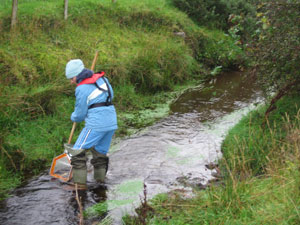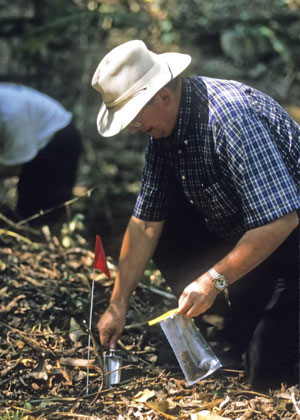Environmental Scientist
Tasks & duties

Environmental scientists may do some or all of the following:
-
study and assess sources of pollution and develop ways to control pollution
-
study and develop environmental policies and plans using ecological, mathematical or physical science data
-
develop ways to repair damaged areas of the environment
-
prepare reports on the environmental impacts of activities such as mining, forestry and agriculture
-
provide technical advice to clients, members of the public, interest groups, local iwi, regulatory bodies or local government authorities
-
prepare applications for resource consent on behalf of clients, in compliance with the Resource Management Act.
-
At the technician level, the main tasks are to help scientists prepare and carry out a range of experiments and tests
Specialisations
Environmental scientists might work as researchers (investigating environmental issues), policy analysts (developing environmental policies), or engineers (developing tools to solve or prevent environmental problems).
Skills & knowledge

Environmental scientists need to have:
-
knowledge of the environment including good knowledge of at least one area of environmental science such as water, land or air quality
-
an understanding of the Resource Management Act
-
knowledge of the consequences commercial development may have on the environment
-
knowledge of new technology and research
-
planning and organisational skills
-
research skills
-
practical skills for performing experiments and operating scientific equipment
-
skill in analysing and interpreting research results and other information
-
the ability to think in a comprehensive way to see the relationships between different things
-
problem-solving skills
-
communication skills
-
writing skills, for writing reports and for publications
-
maths and computer skills
Entry requirements
To become an environmental scientist you usually need a Master's degree in environmental science or a related area such as chemistry or engineering. A PhD is generally required for research-based positions.
At the technician level, a Bachelor's degree in a related science subject is the minimum entry requirement.
Secondary education
Bursary or NCEA equivalent is required to enter tertiary training. Useful subjects include science, maths, geography, chemistry and biology.
Training on the job
Environmental scientists gain or refine skills on the job, and attend conferences and courses to improve their knowledge.
Environmental scientists working at the technician level often study for a Masters or PhD while working. They are also mentored by scientists whose projects they are working on to gain practical skills for carrying out specific experiments.
Useful experience
Useful experience for environmental scientists includes:
-
surveying work
-
environmental engineering work
-
environmental monitoring or measurement
-
laboratory work
-
being a member of an environmental interest or community group
-
learning about native plants and animals
-
outdoor work
-
completing a summer placement at a regional or city council
Related courses
Environmental Health
Land, Parks and Wildlife Management
For more information, please refer to Career Services.
Document Actions
